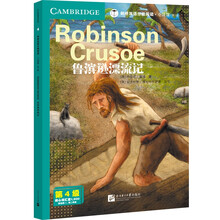The Stockings Were Hung by the Chimneey with Care
已经小心的在烟囱旁挂上了长筒袜
Perhaps you have read these famous words: "Twas the night before Christmasand all through the house, not a creature was stirring, not even a mouse." Twas theday before Christmas, December 24, the day in 1822 that Clement Moore is thought to ave composed the classic poem that was then called "A Visit from St. Nicholas." Youprobably know it as "The Night Before Christmas". While traveling home fromGreenwich Village , in Manhattan, where he had bought a turkey for his familysChristmas dinner, Moore penned4 the story for the amusement of his six children, withwhom he shared the poem that evening.
He was inspired by the plump, bearded Dutchman who took him by sleigh on hiserrand through the snow-covered streets of New York City. Moores vision of St.Nicholas draws upon Dutch-American and Norwegian traditions of a magical, gift-giving figure who appears at Christmas time. It is also based on the German legend ofa visitor who enters homes through chimneys. Clement Moore knew of such folklore asa learned man of literature. He was born into a well-respected New York family in1779. His father, Benjamin Moore, had served as president of Columbia Universityand Episcopal bishop of New York, participating in the inauguration of GeorgeWashington as the nations first president.
Clement Moore graduated from Columbia. As a scholar, he is said to have beenembarrassed by the light-hearted holiday poem, which somehow made its way into thepublic without his knowledge in December 1823. Moore did not publish it under hisname until 1844. Many editions of "The Night Before Christmas" have been publishedover the years.
American parents still read the tale to their children at bedtime on December 24,as their parents did to them. This message from Santa, recorded by the ThomasEdison Company in 1922, didnt quite become a classic. But you might imagine smallchildren listening to it on an old phonograph , believing the voice they heard was reallythat of Santa Claus, hidden inside the machine.
展开










